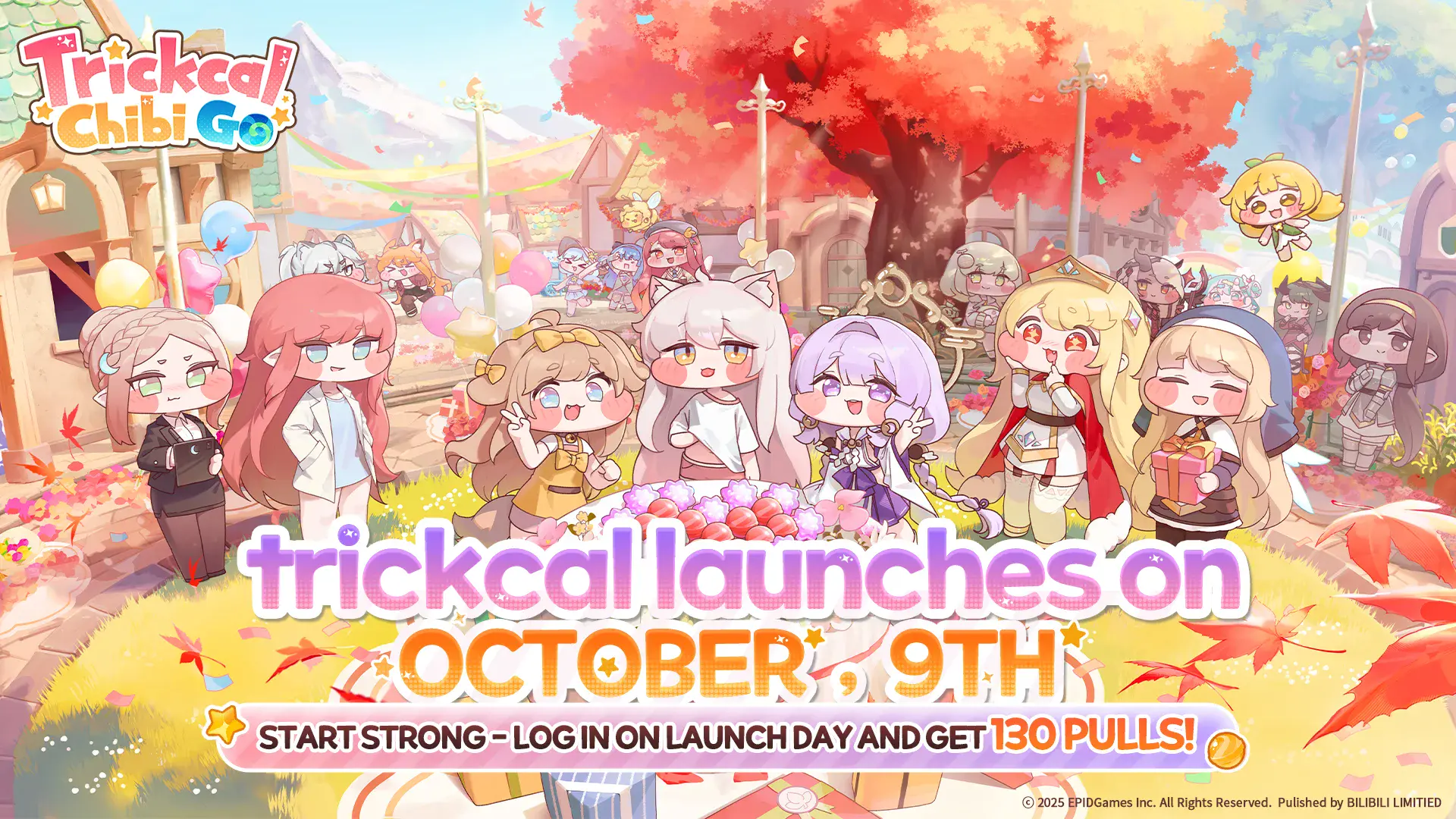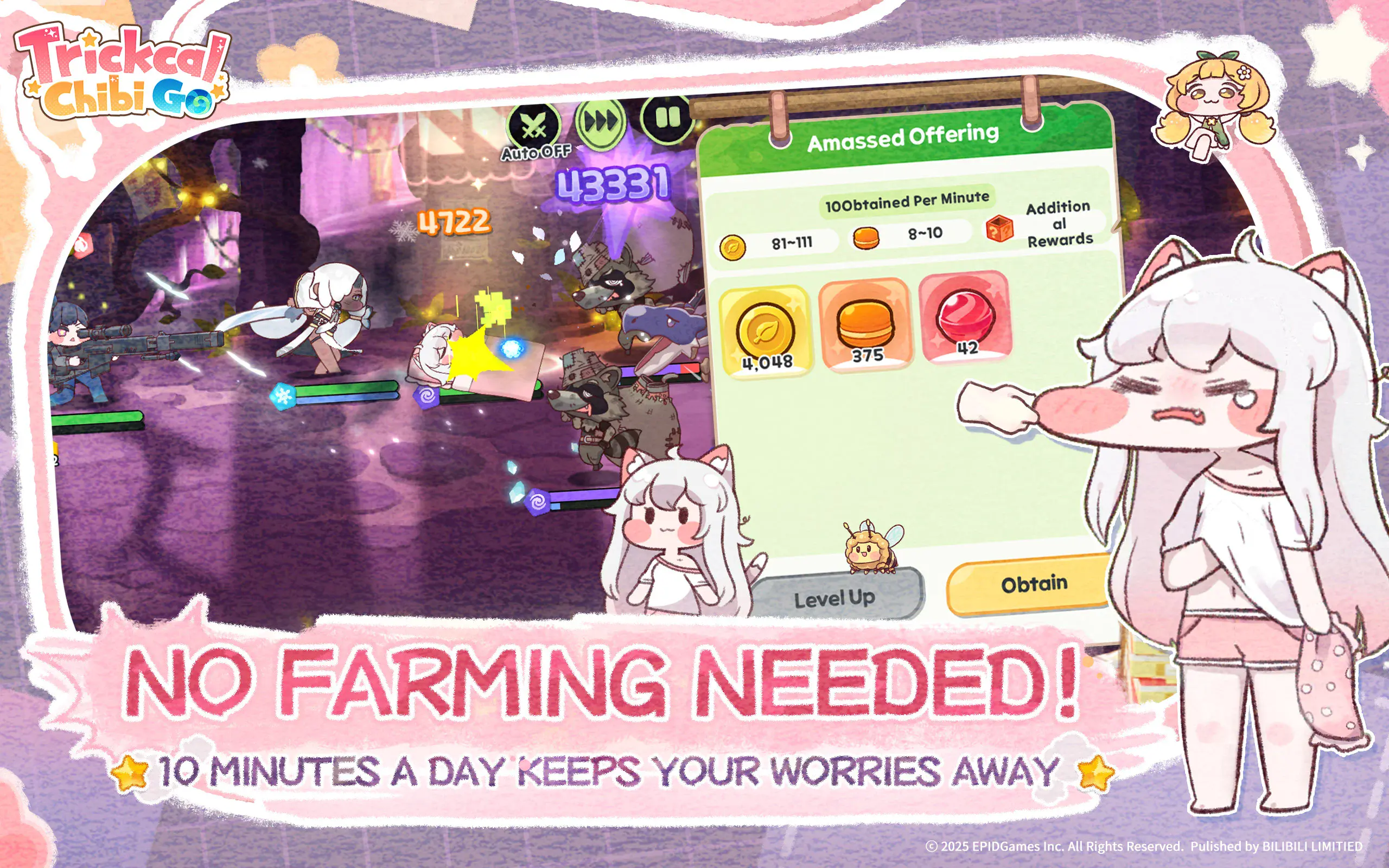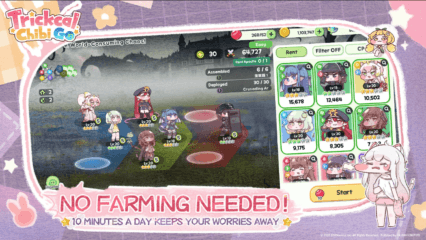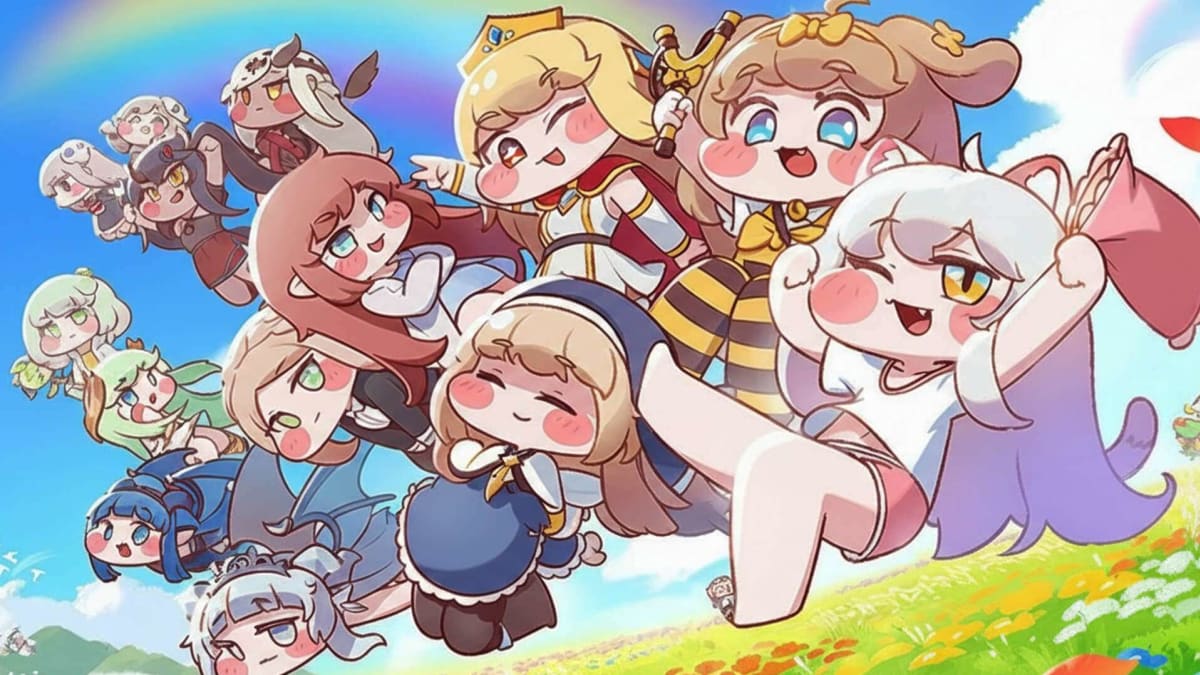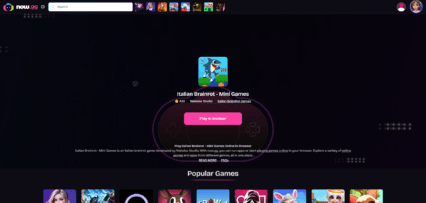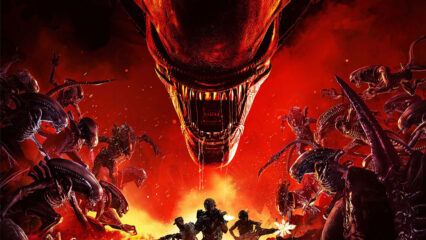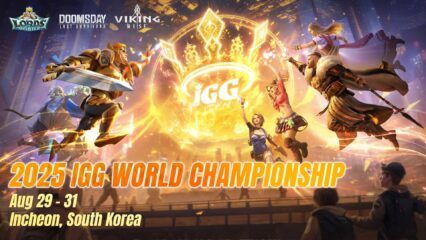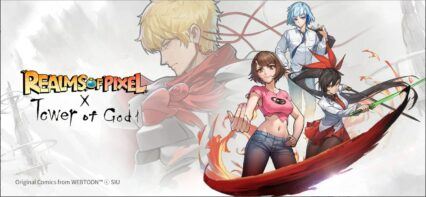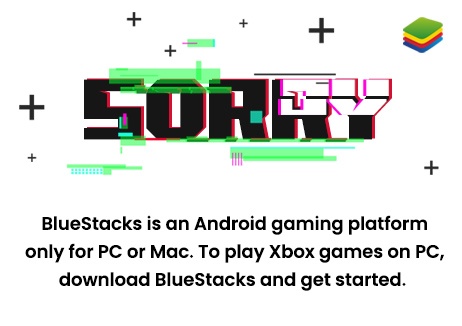Trickcal:Chibi Go — Tips and Tricks to Build the Best Teams
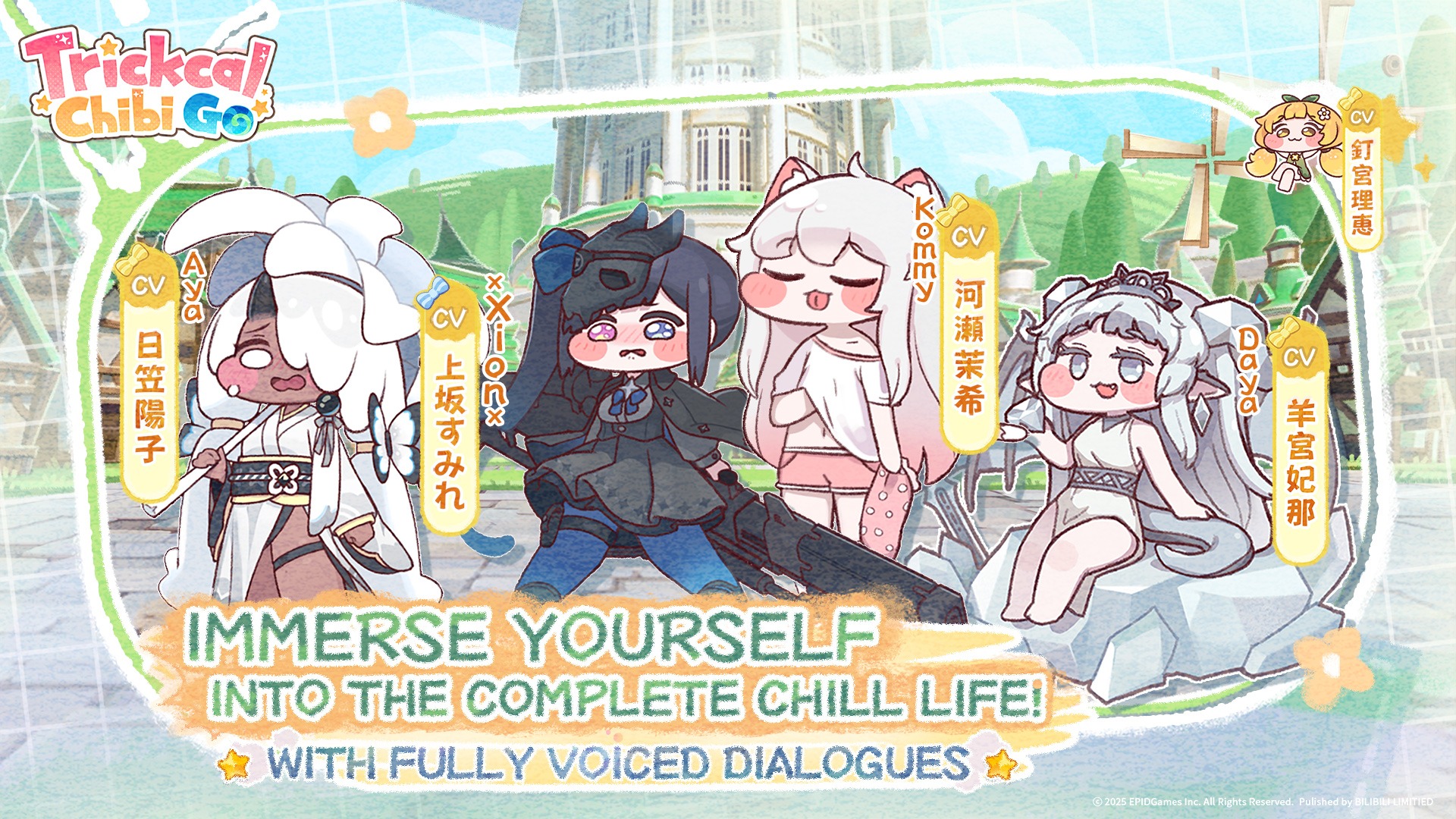
In Trickcal:Chibi Go, winning battles often comes down to how well you build your team before the fight starts. With the Preparation Phase, positioning, affinities, and upgrade resources all playing a role, smart team composition gives you a major edge.
This guide will walk you through the key principles of team building in this RPG, including the preparation mechanics, role balance, positioning strategies, affinity matchups, and tips to get the most from duplicates and upgrades. Whether you’re pushing story stages, dueling in PvP, or taking down a tough boss, these ideas will help you make stronger teams from the start.
Preparation Phase & Team Rules
Before every battle, you enter the Preparation Phase, usually lasting one minute. During this time, you assemble your team using limited coins, pick from available apostles, and position them.
Some rules to keep in mind:
- You are allowed to field six apostles.
- Each wave gives you additional coins for the next round, letting you adjust your lineup.
- If an apostle is defeated, you can redeploy them in later waves by spending coins again.
- In many stages, the game offers suggested apostles, which are auto-included unless you choose to swap them.

This phase is your chance to set your strategy—invest in strong apostles early, maintain flexibility, and plan for future waves.
Roles & Positioning Strategy
A well-rounded team usually mixes three roles: Tank, DPS, and Supporter. Positioning them across Front, Mid, and Back lines is critical to maximizing their effectiveness.
- Tank: These are your frontline buffers. High durability, damage mitigation, and abilities that taunt or protect. Place 1 or 2 tanks in the Front line so they soak hits first.
- DPS: The core damage output of your team. Depending on range, short-range DPS goes in Mid, long-range DPS in Back—protected behind tanks.
- Supporter: Healers, buffer/debuffer units, or utility characters. These should usually be in Back or Mid, away from direct damage but close enough to buff your DPS and keep the frontline alive.

When building your team, think of layers: Tanks buffer, DPS deal damage, Supporters sustain or amplify. Proper synergy between those roles usually wins matches. Also, remember to aim for unlocking the top tier characters as soon as possible, since these will give you a leg up in your progression.
Affinities, Elements, and Synergy Bonuses
Trickcal:Chibi Go doesn’t use typical elemental naming conventions. Instead, it leans into a theme of “personalities” to define elemental affinities. These are still color-coded and function similarly to a traditional elemental system, with strengths and weaknesses that you’ll want to understand when building teams.
Here’s how it breaks down:
- Innocent (Green): Strong against Composed, weak against Madness
- Composed (Blue): Strong against Madness, weak against Innocent
- Madness (Red): Strong against Innocent, weak against Composed
This triangle forms the core of elemental counters—matching an Apostle with an advantage increases outgoing damage by 200%, while incoming damage from a weaker element is reduced by 50%.
Then there are two wildcard personalities:
- Vivacious (Gold)
- Depressed (Purple)
These two don’t interact with the main triangle but instead counter each other directly. Vivacious is strong against Depressed, and vice versa. When facing off against opponents with either of these rarer personalities, bring the counter type if possible for optimal effect.

Aside from element matchup, there are also team synergy bonuses based on shared affinities. If your team has multiple Apostles with the same personality, you gain stat boosts such as increased HP, ATK, or Crit Rate. For example, fielding three Apostles with the Madness personality could give your entire squad a bump in damage.
This creates a strategic trade-off: do you go for pure synergy to maximize stats, or diversify affinities to counter the enemy lineup? The best teams usually strike a balance between synergy buffs and element coverage, giving you both power and flexibility.
Character Upgrades & Progression
To stay competitive, especially in later stages, upgrading your Apostles is a must. Fortunately, Trickcal:Chibi Go offers several ways to enhance your team beyond just leveling up.
Here are the main upgrade paths:
- Leveling Up: Increases an Apostle’s base stats—straightforward and essential.
- Skill Upgrades: Each Apostle has unique abilities. Enhancing these improves cooldowns, damage, or utility effects.
- Equipment Management: Equipping better gear can significantly impact survivability and damage output. Gear also has its own stats and rarities.
- Apostle Certificates: When you summon duplicates, instead of another copy, you receive Apostle Certificates. These are used to increase the star rating of an Apostle, directly boosting their overall power and unlocking growth potential.
- Gear and Character Enhancement: Many Apostles can also be enhanced via essence materials or rare items, further increasing their effectiveness.
Staying on top of these upgrades is vital. Even a good team composition can fall short if your Apostles are underleveled or unoptimized. Always keep an eye on the upgrade indicator in your UI—the red fist icon—which alerts you to available upgrades. Use it frequently to stay ahead of the curve.

In tough fights or PvP, small stat increases from upgrades can be the tipping point between a narrow loss and a comfortable win.
Team building in Trickcal:Chibi Go is a mix of strategy, resource management, and a little prediction. Understand the Preparation Phase, mix roles wisely, factor in affinities, and upgrade duplicates smartly, and your chance of success rises sharply.
And of course—if you want clearer visuals, easier team management, and more comfortable controls—play Trickcal:Chibi Go on PC with BlueStacks. You’ll find team building smoother, swapping faster, and battles more immersive.


